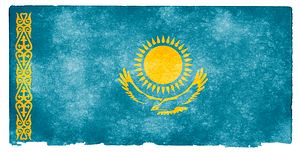A verdict is expected on November 2 in the case of Ruslan Kulikbayev, the man responsible for a July 18 shooting spree in Almaty. Kulikbayev has admitted to the killing of several police officers, so the only questions that remain are whether he will be given a death sentence and what, if any, lessons Kazakh authorities will draw from the incident.
On July 18, Kulikbayev says he killed a prostitute early in the morning. He says he next went to an Almaty courthouse but did nothing there because there were too many civilians. He went instead to a police station, where he shot a policeman and took his automatic weapon. He then shot two more policemen and the driver of a car he tried to steal while fleeing. The driver of another car caught him on her dashcam but he did not shoot. After a chase and gunbattle, he was arrested. The final count was eight dead police officers and two dead civilians. Kulikbayev says he only wanted to kill police.
As Aigerim Toleukhanova reported for EurasiaNet, Kulikbayev had been combative throughout the trial: “He refused to stand when addressed by the judge, spoke quietly and indistinctly and, one time, flipped a table at a investigator during a hearing, despite being handcuffed.”
Toleukhanova notes an “unsettling similarity” between the Almaty shooting and the Aktobe attack a month before. Though the incidents have not been linked, she rightfully points out that in both cases the attackers targeted government buildings and security personnel specifically.
Here Kazakh authorities have an opportunity to draw a lesson about the roots of grievances that manifest in violence. Kulikbayev’s motivation, as he made clear in his final statement, was religiously inspired but not necessarily externally directed: he said those he’d killed “were persecuting and tormenting my Muslim brothers.” The man said to have organized the Aktobe attack made similar comments.
However, immediate coverage of both attacks jumped to terrorism. Nazarbayev called the Almaty shooting an “act of terrorism” almost immediately (he’d been suspiciously silent in the immediate aftermath of the Aktobe events). Police sources described Kulikbayev as “a religious radical and probably a follower of non-traditional Islam.”
Kazakhstan’s urge to crack down on possible extremists also lends itself to putting pressure on the Muslim community writ-large, with those considered “non-traditional” feeling the weight first. Earlier this month the new Ministry of Religious Issues and Civil Society said it was looking into banning the Salafi branch of Islam, a hyper-conservative Sunni variation with roots in the 18th century Middle Eastern anti-colonial backlash. Most Muslims in Central Asia are followers of the Hanafi school, a Sunni iteration which is decidedly more moderate than Salafism. It should also be noted also that the pervasive Soviet-inspired drinking culture across Central Asia runs directly counter to “traditional” Islamic dictums. What is traditional and what is not is relative and fluid.
Kazakh security services say Kulikbayev was radicalized in prison by Salafists, something the Interior Ministry denies. It’s unlikely that banning Salafism will make its adherents disappear and persecuting a group for their religious beliefs is a quick route to radicalizing them.

































